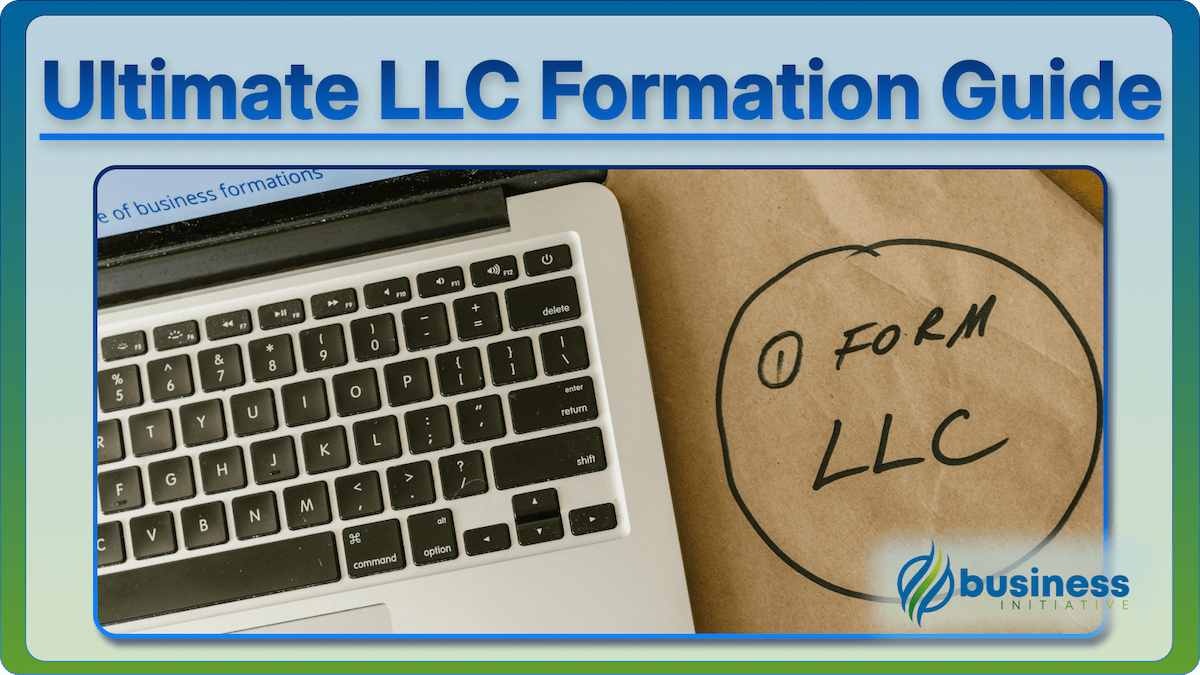You’re investing in SEO, but you don’t know if it’s working. Organic traffic grows, but ROI is unclear. This blindness prevents you from optimizing SEO investment.
SEO ROI measurement solves this by tracking organic strategy value systematically. It measures traffic, conversion, and revenue from SEO, which shows whether organic strategy pays off. This measurement is essential for effective SEO management.
This guide provides a foundational approach to measuring traffic, conversion, and revenue from SEO, helping you determine whether your organic strategy is paying off and how to calculate SEO ROI effectively.
We’ll explore why SEO ROI measurement matters, traffic tracking, conversion measurement, revenue attribution, and ROI calculation. By the end, you’ll understand how to measure SEO ROI effectively.
 Key Takeaways
Key Takeaways
- Track traffic—measure organic visitors from SEO
- Track conversions—measure leads and sales from SEO
- Track revenue—measure revenue attributed to SEO
- Calculate ROI—determine SEO profitability
- Optimize strategy—adjust SEO based on ROI data
 Table of Contents
Table of Contents

Why SEO ROI Measurement Matters
SEO without ROI measurement is blind. When you don’t know SEO value, you can’t optimize. This blindness prevents effective marketing.
SEO ROI measurement matters because it enables optimization. When you measure ROI, you can improve SEO. This measurement enables effective marketing.
The reality: Most businesses don’t measure SEO ROI, which means they can’t optimize. SEO ROI tracking shows value, enabling effective optimization.
Traffic Tracking
Traffic tracking measures organic visitors. When you track traffic, you see SEO reach.
Organic Traffic Measurement
Track organic visitors:
- Measure organic traffic
- Track search visitors
- Monitor organic growth
- Build traffic tracking
- Create visitor measurement
Why this matters: Organic traffic measurement shows reach. If you track traffic, you see SEO reach. This tracking enables reach understanding.
Traffic Source Analysis
Analyze traffic sources:
- Identify organic sources
- Track search engines
- Monitor referral traffic
- Build source analysis
- Create source tracking
Why this matters: Traffic source analysis shows channels. If you analyze sources, you see which channels work. This analysis enables channel understanding.
Keyword Performance
Track keyword performance:
- Measure keyword traffic
- Track ranking positions
- Monitor keyword growth
- Build keyword tracking
- Create ranking measurement
Why this matters: Keyword performance shows content value. If you track keywords, you see content performance. This tracking enables content understanding.
Page Performance
Track page performance:
- Measure page traffic
- Track landing pages
- Monitor page growth
- Build page tracking
- Create landing page measurement
Why this matters: Page performance shows content value. If you track pages, you see content performance. This tracking enables content understanding.
Pro tip: Use our SEO ROI Calculator to track organic traffic, conversions, and revenue automatically. Input SEO costs and performance metrics to calculate ROI and see whether your organic strategy is paying off.

Conversion Measurement
Conversion measurement tracks leads and sales from SEO. When you measure conversions, you see SEO value.
Lead Tracking
Track leads from SEO:
- Measure organic leads
- Track form submissions
- Monitor lead quality
- Build lead tracking
- Create lead measurement
Why this matters: Lead tracking shows acquisition. If you track leads, you see SEO acquisition value. This tracking enables acquisition understanding.
Conversion Rate Analysis
Analyze conversion rates:
- Measure organic conversion rates
- Track conversion trends
- Monitor rate changes
- Build conversion analysis
- Create rate tracking
Why this matters: Conversion rate analysis shows efficiency. If you analyze rates, you see SEO efficiency. This analysis enables efficiency understanding.
Funnel Tracking
Track conversion funnels:
- Measure funnel performance
- Track funnel stages
- Monitor drop-off points
- Build funnel tracking
- Create funnel measurement
Why this matters: Funnel tracking shows user journey. If you track funnels, you see user journey. This tracking enables journey understanding.
Goal Completion
Track goal completions:
- Measure goal completions
- Track defined goals
- Monitor completion rates
- Build goal tracking
- Create completion measurement
Why this matters: Goal completion tracking shows success. If you track goals, you see SEO success. This tracking enables success understanding.
Revenue Attribution
Revenue attribution connects SEO to sales. When you attribute revenue, you see SEO value.
Direct Attribution
Attribute direct sales:
- Connect SEO to direct sales
- Track immediate conversions
- Monitor direct revenue
- Build direct attribution
- Create sales connection
Why this matters: Direct attribution shows immediate value. If you attribute directly, you see immediate SEO value. This attribution enables immediate value understanding.
Assisted Attribution
Attribute assisted sales:
- Connect SEO to assisted sales
- Track multi-touch conversions
- Monitor assisted revenue
- Build assisted attribution
- Create multi-touch connection
Why this matters: Assisted attribution shows full value. If you attribute assisted, you see full SEO value. This attribution enables full value understanding.
Revenue Tracking
Track SEO revenue:
- Measure revenue from SEO
- Track sales attribution
- Monitor revenue impact
- Build revenue tracking
- Create sales measurement
Why this matters: Revenue tracking shows value. If you track revenue, you see SEO value. This tracking enables value understanding.
Customer Lifetime Value
Track CLV from SEO:
- Measure CLV from organic
- Track customer value
- Monitor lifetime value
- Build CLV tracking
- Create value measurement
Why this matters: CLV tracking shows long-term value. If you track CLV, you see long-term SEO value. This tracking enables long-term value understanding.

ROI Calculation
ROI calculation determines SEO profitability. When you calculate ROI, you see SEO value.
Cost Tracking
Track SEO costs:
- Measure SEO investment
- Track content costs
- Monitor tool expenses
- Build cost tracking
- Create expense measurement
Why this matters: Cost tracking shows investment. If you track costs, you see SEO investment. This tracking enables investment understanding.
ROI Formula
Calculate SEO ROI:
- Calculate ROI per channel
- Measure SEO profitability
- Assess SEO value
- Build ROI calculation
- Create profitability measurement
Why this matters: ROI calculation shows profitability. If you calculate ROI, you see SEO profitability. This calculation enables profitability assessment.
Payback Period
Calculate payback period:
- Measure time to break even
- Track payback timeline
- Monitor recovery period
- Build payback calculation
- Create timeline measurement
Why this matters: Payback period shows recovery time. If you calculate payback, you see recovery time. This calculation enables recovery understanding.
Performance Benchmarking
Benchmark SEO performance:
- Compare to industry standards
- Track performance trends
- Monitor benchmark changes
- Build benchmarking system
- Create comparison framework
Why this matters: Performance benchmarking shows position. If you benchmark, you see SEO position. This benchmarking enables position understanding.
Pro tip: Use our SEO ROI Calculator to calculate SEO ROI automatically. Input costs, traffic, conversions, and revenue to see whether your organic strategy is paying off.
Your Next Steps
SEO ROI measurement enables optimization. Track organic traffic, measure conversions, attribute revenue, then calculate ROI to see whether your organic strategy is paying off.
This Week:
- Set up SEO tracking using our SEO ROI Calculator
- Collect organic traffic, conversion, and revenue data
- Calculate SEO ROI for your organic strategy
- Identify high and low-performing SEO channels
This Month:
- Build comprehensive SEO ROI dashboard
- Analyze SEO performance and ROI
- Attribute revenue to SEO channels
- Plan SEO optimization strategy
Going Forward:
- Monitor SEO ROI dashboard regularly
- Continuously optimize SEO investment
- Scale high-ROI SEO tactics
- Remove or improve low-ROI SEO activities
Need help? Check out our SEO ROI Calculator for ROI measurement, our ROI Calculator for general ROI calculations, our content ROI guide for content measurement, and our content strategy guide for objective alignment.
Stay informed about business strategies and tools by following us on X (Twitter) and signing up for The Initiative Newsletter.
FAQs - Frequently Asked Questions About SEO ROI Explained: How to Measure Whether Your Organic Strategy Is Paying Off

How do I calculate the ROI of my SEO strategy?
Subtract your total SEO costs from the revenue attributed to organic traffic, then divide by your SEO costs and multiply by 100 to get the ROI percentage.
Learn More...
The basic SEO ROI formula is: (Revenue from SEO - SEO Costs) / SEO Costs x 100. This gives you the percentage return on your organic strategy investment.
Include all costs: content creation, SEO tools, agency fees, and staff time. For revenue, attribute sales that originated from organic search using analytics tracking. Both direct conversions and assisted conversions where SEO played a role should be counted for a complete picture.
What is the difference between direct attribution and assisted attribution for SEO revenue?
Direct attribution counts sales where SEO was the last touch before purchase, while assisted attribution credits SEO when it contributed to the customer journey but wasn't the final step.
Learn More...
Direct attribution tracks immediate conversions—a customer searches, lands on your page, and buys in that session. Assisted attribution recognizes that SEO often starts the journey even when the final conversion happens through email, social, or direct visits later.
Relying only on direct attribution significantly undervalues SEO because organic search frequently introduces customers to your brand weeks before they convert through another channel. Including assisted conversions gives you the full picture of SEO's revenue contribution.
What organic traffic metrics should I track to measure SEO performance?
Track total organic traffic, traffic by source, keyword rankings, and individual page performance to understand how SEO drives visitors to your site.
Learn More...
Start with total organic traffic to see overall reach, then break it down by search engine source. Track keyword performance to see which terms drive the most valuable traffic and monitor ranking positions to understand your visibility trends.
Page-level performance reveals which content generates the most organic visits and conversions, helping you identify what's working and what needs improvement. Monitor growth trends over time rather than focusing on any single month.
How do I track conversions from organic search traffic?
Set up goal tracking in your analytics platform to measure leads, form submissions, and sales that originate from organic search visitors.
Learn More...
Configure your analytics tool to track specific conversion events—form submissions, purchases, signups, downloads—and filter by organic traffic source. This shows you which SEO visitors are taking valuable actions.
Also track conversion rates by landing page and keyword to identify which content converts best. Monitor the full funnel from visit to lead to sale, watching for drop-off points where organic visitors leave without converting so you can optimize those pages.
Why is customer lifetime value important when calculating SEO ROI?
CLV captures the total long-term revenue from customers acquired through SEO, revealing that the true ROI is often much higher than single-transaction measurements show.
Learn More...
A customer's first purchase is just the beginning. If organic search brings in a customer who makes repeat purchases over years, counting only the first sale dramatically understates SEO's value.
By factoring in customer lifetime value, you see the compounding return of SEO-acquired customers. This often reveals that SEO is your most profitable acquisition channel because organic customers tend to have higher trust and loyalty than those from paid channels.
How do I benchmark my SEO ROI against industry standards?
Compare your SEO ROI percentage, organic traffic growth rate, and conversion rates to published industry benchmarks and your own historical performance.
Learn More...
Look at industry reports for average organic conversion rates, typical SEO ROI ranges, and standard traffic growth benchmarks in your sector. Compare your metrics to these baselines to understand where you stand.
Also benchmark against your own history—are your metrics improving quarter over quarter? Track performance trends rather than fixating on absolute numbers, since SEO ROI varies significantly by industry, business model, and competitive landscape.
Sources & Additional Information
This guide provides general information about SEO ROI measurement. Your specific situation may require different considerations.
For SEO ROI tracking, see our SEO ROI Calculator.
Consult with professionals for advice specific to your situation.


